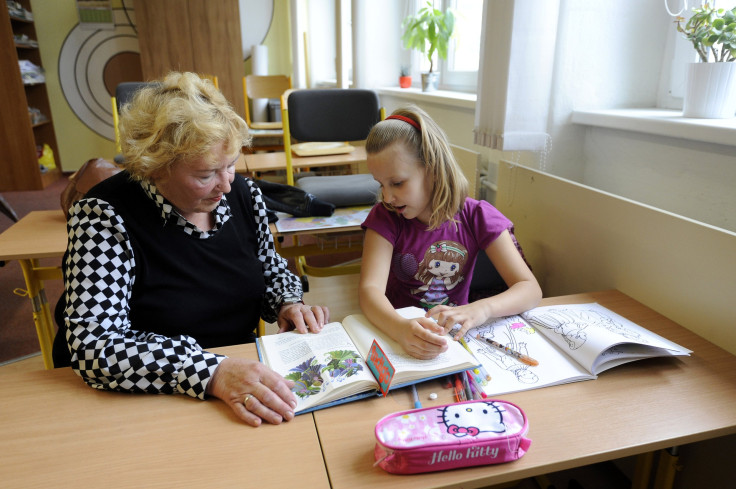Brain Scans Can Detect Children's Reading Ability

Stanford researchers say that brain scans can help detect whether or not a child will develop reading-related problems in the future, a discovery that opens up possibility of intervention programs for helping children improve their reading ability.
In a study, conducted over a period of three years, researchers at Stanford University assessed children's reading skills with the help of standardized tests. They observed and analyzed the participants' brain scans taken during the study.
Researchers found that in each of the 39 children, the rate of development in the white matter region accurately predicted the child's score on a reading test. The white matter regions of the brain are associated with reading; the rate of development in the brain region is measured by fractional anisotropy, or FA.
Further, children who displayed above-average reading skills had FA in two regions, the left hemisphere arcuate fasciculus and the left hemisphere inferior longitudinal fasciculus. Interestingly, in children who develop good reading skills, the initial FA was lower but increased over time. In children that had lower reading abilities, the FA was higher initially but declined afterwards.
According to researchers, a child's ability to read at seven years of age can predict hisor her reading ability at 17 years of age. But, detecting if the child has problems with reading can be a challenge. "By the time kids reach elementary school, we're not great at finding ways of helping them catch up," said Jason D. Yeatman, a doctoral candidate in psychology at Stanford and the lead author on the study.
The great news is the study could one day lead to an early warning system for struggling students and this could help children improve their reading ability as the brain is young and is still developing.
"Once we have an accurate model relating the maturation of the brain's reading circuitry to children's acquisition of reading skills, and once we understand which factors are beneficial, I really think it will be possible to develop early intervention protocols for children who are poor readers, and tailor individualized lesson plans to emphasize good development. Over the next five to 10 years, that's what we're really hoping to do," Yeatman said.
The study was published in the Proceedings of the National Academy of Sciences.



























